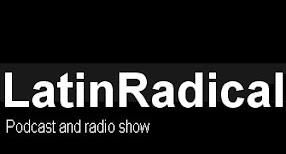Fri, 14 September 2012
46.3 Mb. 51 minutes
Jose Belo is a Timorese man who perhaps represents the highest values of journalism. Active in the Timorese resistance movement against the Indonesian occupation, he was a critical factor in enabling those few independent Australian journalists who contrived to work in Timor Leste (legendary journalists like John Martinkus, Max Stahl, and others) to gather critical information about the Indonesian occupation, and to get that information out. He was captured and tortured by the Indonesians 7 times, continuing to work in Timor even though he had the opportunity to live in exile in Australia.
After Timorese independence he became a journalist, still maintaining a critical and independent attitude to successive governments of Timor Leste. One year he was threatened with house arrest when he accused a government minister of corruption. He is currently the editor of "Tempo Semanal", a weekly publication that is one of the most influential in the country, still attacking the government on issues of corruption and misspending of state finances.
He was involved in the making of the film Balibo, and more recently, the subject of a more recent film ('Breaking the news') about to be released exposing the behaviour and role of some foreign journalists working in Timor Leste whose ethical and professional standards do not perhaps, match up to Jose's own.
In this interview he talks about his values as a journalist, why he became a journalist, how he became a journalist, and the values that inform his work.
Note: This is a raw, unedited sound file. The sound quality is generally adequate for reproduction, but another shortened edited and contextualised version of this interview will be posted soon.
Jose Belo is a Timorese man who perhaps represents the highest values of journalism. Active in the Timorese resistance movement against the Indonesian occupation, he was a critical factor in enabling those few independent Australian journalists who contrived to work in Timor Leste (legendary journalists like John Martinkus, Max Stahl, and others) to gather critical information about the Indonesian occupation, and to get that information out. He was captured and tortured by the Indonesians 7 times, continuing to work in Timor even though he had the opportunity to live in exile in Australia.
After Timorese independence he became a journalist, still maintaining a critical and independent attitude to successive governments of Timor Leste. One year he was threatened with house arrest when he accused a government minister of corruption. He is currently the editor of "Tempo Semanal", a weekly publication that is one of the most influential in the country, still attacking the government on issues of corruption and misspending of state finances.
He was involved in the making of the film Balibo, and more recently, the subject of a more recent film ('Breaking the news') about to be released exposing the behaviour and role of some foreign journalists working in Timor Leste whose ethical and professional standards do not perhaps, match up to Jose's own.
In this interview he talks about his values as a journalist, why he became a journalist, how he became a journalist, and the values that inform his work.
Note: This is a raw, unedited sound file. The sound quality is generally adequate for reproduction, but another shortened edited and contextualised version of this interview will be posted soon.






0 comments:
Post a Comment